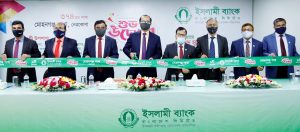Bennett Model helped pioneer the exporting of garments from China in 1975, the year before Mao Zedong died, and ever since, his New York fashion company has searched for other countries, from Guatemala to Vietnam to Indonesia, capable of supplying top retailers like Bergdorf Goodman and Neiman Marcus.The relentless search for new locations has taken on more urgency after the deadliest industrial accident in the global garment industry’s history, a multistory factory collapse in Bangladesh that left 1,127 people dead. Buying from Bangladesh, said Mr. Model, “has been politically incorrect ever since problems started there, so a lot of major players had already been looking for alternatives.”
When a senior executive from one of the largest American mass-market retailers called him last week with worries about suppliers in Bangladesh and plans for a trip to Vietnam and Cambodia to seek alternatives, Mr. Model was ready with advice: “I told him to add a stop in Indonesia.”
Many Western executives are taking such trips this spring. A lethal factory fire in Bangladesh last November, 33 regional or national strikes there since January, hundreds of deaths in factional street fighting there since February, and the Rana Plaza collapse in late April have left multinational corporations scrambling for other options.
“Right now, the name of Bangladesh just gives a bad rep to a company,” said Mr Model, the dapper chief executive of Joseph Model Associates, which designs and distributes the Annabelle New York brand of high-end apparel and also makes private-label brands for various department store chains.
Western executives are checking on potential new suppliers in southern Vietnam, central Cambodia and the hinterlands of Java in Indonesia. Yet safety problems could exist anywhere. The ceiling of a small factory that makes shoes in central Cambodia collapsed on Thursday morning, killing at least two people and injuring nine, three of them severely.
The JW Marriott Hotel in Jakarta, a favorite of Western garment buyers, is nonetheless so full these days that it is hard to book a room on short notice. Indonesian garment executives say they have seen a steady procession of arrivals in recent weeks and months, always asking the same questions about political stability, labor laws, safety compliance and wages.
“At first it was because of China getting too expensive, then came the Bangladesh fire tragedy, and then there have been so many steps in Bangladesh’s troubles,” said Ade Sudradjat, the chairman of the Indonesian Textile Association. “Some buyers feel uncomfortable placing orders in Bangladesh.”
Many multinationals are exploring their options in case street clashes and politically motivated national strikes worsen in Bangladesh, which is the world’s second-largest garment manufacturer after China. A new faction in the country’s Islamist movement has staged more violent protests lately that have sometimes resulted in the temporary closure of factories.
Garment manufacturing makes up a fifth of the economy in Bangladesh and four-fifths of its exports, which means that one of the world’s poorest, most densely populated countries is desperately dependent on continued export orders to stave off soaring unemployment and possibly further political unrest. Some executives say that many multinationals will continue buying from Bangladesh, although some may diversify their orders to more countries. (banglanews24.com)




